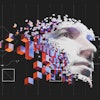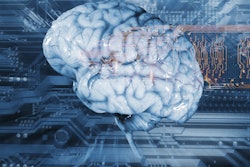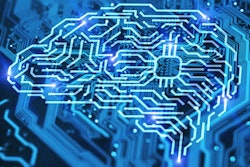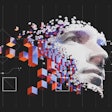Welcome to the first installment of this year's Road to RSNA preview of the RSNA 2022 meeting. We're once again providing a modality-by-modality overview of select scientific presentations to serve as your guide to events at McCormick Place.
Our journey along the Road to RSNA will begin fittingly with our preview of artificial intelligence (AI), a topic that has dominated the annual meeting for the past six years. Per usual, AI research will feature in a number of dedicated sessions, as well as a variety sprinkled throughout the scientific program.
Scientific presentations at RSNA 2022 will demonstrate the ever-growing utility and breadth of radiology AI tools across the range of the imaging chain. Researchers will share how deep learning-based reconstruction techniques can be utilized to lower radiation dose and speed up exams. Other presentations will detail how AI algorithms can triage imaging studies, assist radiologists in time-consuming tasks, improve diagnostic accuracy, and help to predict treatment outcomes.
Breast imaging remains perhaps the most advanced use case for AI in radiology. For example, evidence is building that AI algorithms can be highly effective as a triage tool for mammograms and digital breast tomosynthesis (DBT) exams highly likely to be normal. With this approach, a significant number -- perhaps as much as 40% -- of DBT screening exams could be removed from the radiologist workflow without increasing false negatives, according to one study set to be presented in Chicago.
See below for previews of these and other AI-related scientific talks at this year's RSNA meeting. Of course, these are just a sample of the content on offer; many other scientific presentations, scientific posters, educational courses and exhibits, and plenary sessions on AI topics also await attendees. For more information on those presentations and other abstracts, view the RSNA 2022 meeting program.
The AI Showcase also returns for RSNA 2022. Located again in the South Hall, the AI Showcase will cover 35,800 square feet and, as of press time, feature 120 exhibitors. The AI Theater will be the venue for daily vendor and RSNA presentations, including a November 28 celebration of the winners of the RSNA's Cervical Spine Fracture AI Challenge.
You also won't want to miss this year's Imaging AI in Practice interoperability demonstration, which will showcase in real-world clinical scenarios how AI can be integrated into radiology practice. In addition, the RSNAI Resource Center will enable visitors to learn more about the RSNA's Imaging AI certificate program and efforts to create data for training AI algorithms.
Finally, those interested in a hands-on educational experience may want to take classes in the RSNA's AI Deep Learning Lab, which will offer attendees the opportunity to improve their knowledge of AI technology, work with deep-learning models, write basic algorithms, and learn how to organize data for implementation, according to the society.
AI algorithm identifies multiple myeloma lesions on whole-body CT
Sunday, November 27 | 9:00 a.m.-10:00 a.m. | S1-SSMK01-2 | Room E451B
Researchers from the Mayo Clinic in Rochester, MN, will share how their deep-learning algorithm can detect multiple myeloma lesions on whole-body CT exams.
Bone-age prediction models may not perform as well in real-world
Sunday, November 27 | 9:00 a.m.-10:00 a.m. | S1-SSMK01-06 | Room E451B
Deep-learning algorithms that predict bone age on radiographs may struggle to reproduce their high testing accuracy when deployed in the real-world, according to this research presentation.
AI model predicts rib fractures in children
Sunday, November 27 | 9:00 a.m.-10:00 a.m. | S1-SSPD01-5 | Room S405
In this session, researchers will present a study of artificial intelligence (AI) algorithms they developed to predict the presence of rib fractures in frontal radiographs of children under 2 years old.
AI algorithm aids in staging of liver fibrosis on CT exams
Sunday, November 27 | 2:30 p.m.-3:30 p.m. | S5-SSGI03-4 | Room S406B
An artificial intelligence (AI) algorithm can yield highly accurate performance for staging liver fibrosis on CT exams, according to this scientific presentation.
AI can safely reduce breast imaging workload
Monday, November 28 | 9:30 a.m.-10:30 a.m. | M3-SSBR03-3 | Room E451A
In a double-reading breast cancer screening program, replacing one reader with artificial intelligence (AI) software can safely reduce about one-third of radiologist workload for low-risk cases, according to this talk.
How to find and address workflow challenges in implementing AI
Monday, November 28 | 9:30 a.m.-10:30 a.m. | M3-SSIN02-6 | Room E350
In this talk, researchers will describe how they identified and addressed challenges to integrating radiology artificial intelligence (AI) algorithms into their clinical workflow.
Deep-learning AI model useful for assessing hip dysplasia
Monday, November 28 | 9:30 a.m.-10:30 a.m. | M3-SSMK04-3 | Room N228
In this musculoskeletal imaging session, researchers will discuss the use of a commercially available artificial intelligence (AI) algorithm for identifying anatomical landmarks of hip dysplasia on anteroposterior pelvis x-rays.
Can AI improve diagnostic accuracy for prostate MRI?
Monday, November 28 | 1:30 p.m.-2:30 p.m. | M6-SSGU03-5 | Room S406B
Preliminary results from a large Dutch study suggest that an artificial intelligence (AI) algorithm could help improve diagnostic accuracy in interpreting prostate MRI exams.
AI improves image quality of MRI liver studies
Wednesday, November 30 | 12:15 p.m.-12:45 p.m. | W5A-SPGI-4 | Learning Center - GI DPS
At this Wednesday afternoon poster session, researchers will present study results that highlight the benefits of using artificial intelligence with a contrast-enhanced T1-weighted MRI sequence for imaging the liver.
Can AI improve fracture detection for emergency physicians?
Wednesday, November 30 | 1:30 p.m.-2:30 p.m. | W6-SSER02-1 | Room S406B
In this emergency and trauma imaging session, researchers will present a study that evaluated the performance of physicians when detecting fractures on x-rays with and without the aid of a deep-learning algorithm.
AI helps radiologists spot pneumothorax faster on ICU chest x-rays
Wednesday, November 30 | 3:00 p.m.-4:00 p.m. | W7-SSIN06-3 | Room S404
In this imaging informatics scientific session, researchers will present a real-world performance study of an artificial intelligence (AI) algorithm designed to detect pneumothorax on routine chest x-rays from the intensive care unit (ICU).
AI can triage negative digital breast tomosynthesis exams
Thursday, December 1 | 8:00 a.m.-9:00 a.m. | R1-SSBR10-1 | Room E451B
An artificial intelligence (AI) algorithm could decrease radiologist workload by providing automated triage of negative digital breast tomosynthesis (DBT) exams, according to this scientific presentation.
Big data or good data: Which is more important in AI research?
Thursday, December 1 | 1:30 p.m.-2:30 p.m. | R6-SSPH15-2 | Room E353C
For radiology artificial intelligence (AI) algorithms, the quality of the training data is more important than the quantity, according to this scientific presentation.
Radiologists detect more lung nodules on CT with help from AI
Thursday, December 1 | 1:30 p.m.-2:30 p.m. | R6-SSCH10-3 | Room N228
Researchers will report on how artificial intelligence (AI) can help radiologists be more accurate and efficient for detecting lung nodules on chest CT exams.
AI takes low-dose chest CT dose even lower
Thursday, December 1 | 1:30 p.m.-2:30 p.m. | R6-SSCH10-2 | Room N228
Researchers have found that deep learning-based reconstruction can enable low-dose chest CT images to be reconstructed with a 75% lower radiation dose without negatively impacting image quality and lesion detection.




















